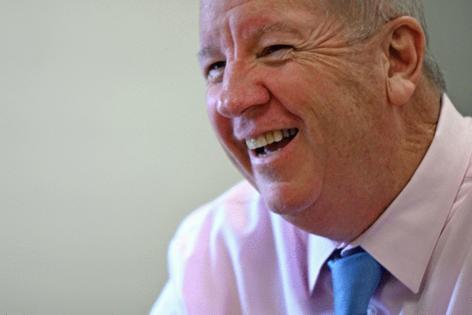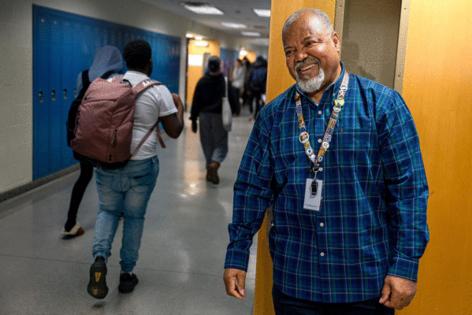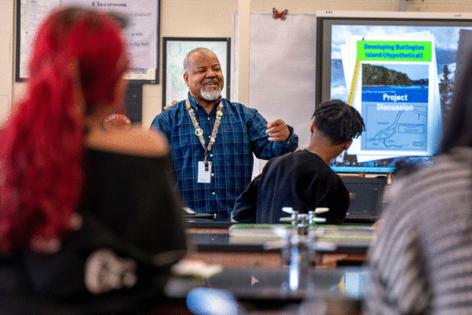New Jersey retirees are choosing teaching as a second career, filling classroom shortages. Here are three of their stories.
Published in News & Features
Shortly before retiring from the Air Force as a logistics specialist, Al Jackson Jr. began preparing for his next career stint: teaching.
Jackson joined the state’s Troops to Teachers program while serving active duty at Joint Base Dix-McGuire-Lakehurst in Wrightstown. He began substitute teaching in nearby North Hanover Township and completing the requirements needed for a permanent full-time teaching position.
After his first substitute day, Jackson went home and told his wife that he had likely discovered a second career on the level with serving his country: working with students.
“I just loved it,” he recalled. “I loved the interaction with the kids.”
That was in 2000, after he retired from the military as a master sergeant with 24 years of service, most while serving as a logistics specialist. He landed almost immediately at the Burlington City school district, initially as a substitute teacher.
“It all lined up,” recalled Jackson.
Jackson completed a bachelor’s degree and obtained a teaching certificate through the alternate route process. Over the years, he’s been an intermediate school language arts and science teacher, and most recently an environmental science teacher at Burlington City High School.
Facing a national teacher shortage — and struggling to fill vacancies in critical subjects such as special education, English language instruction, and science, technology, engineering, and math — more districts are turning to professionals such as Jackson who decided to make education a second career.
New Jersey has sought to waive basic skills requirements and ease unnecessary barriers for educators to attract more teachers at a time when fewer young people are completing teacher education training programs.
It is believed that the shortage will only get worse and districts will need to tap into a pipeline that increasingly includes more teachers who find their way through alternate teaching programs, which allow those who have not completed a teacher preparation program to obtain a certificate of eligibility. They still must meet the basic requirements for certification such as academic study and test requirements.
...continued
©2024 The Philadelphia Inquirer. Visit inquirer.com. Distributed by Tribune Content Agency, LLC.












Comments